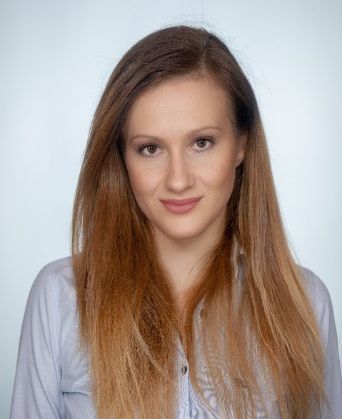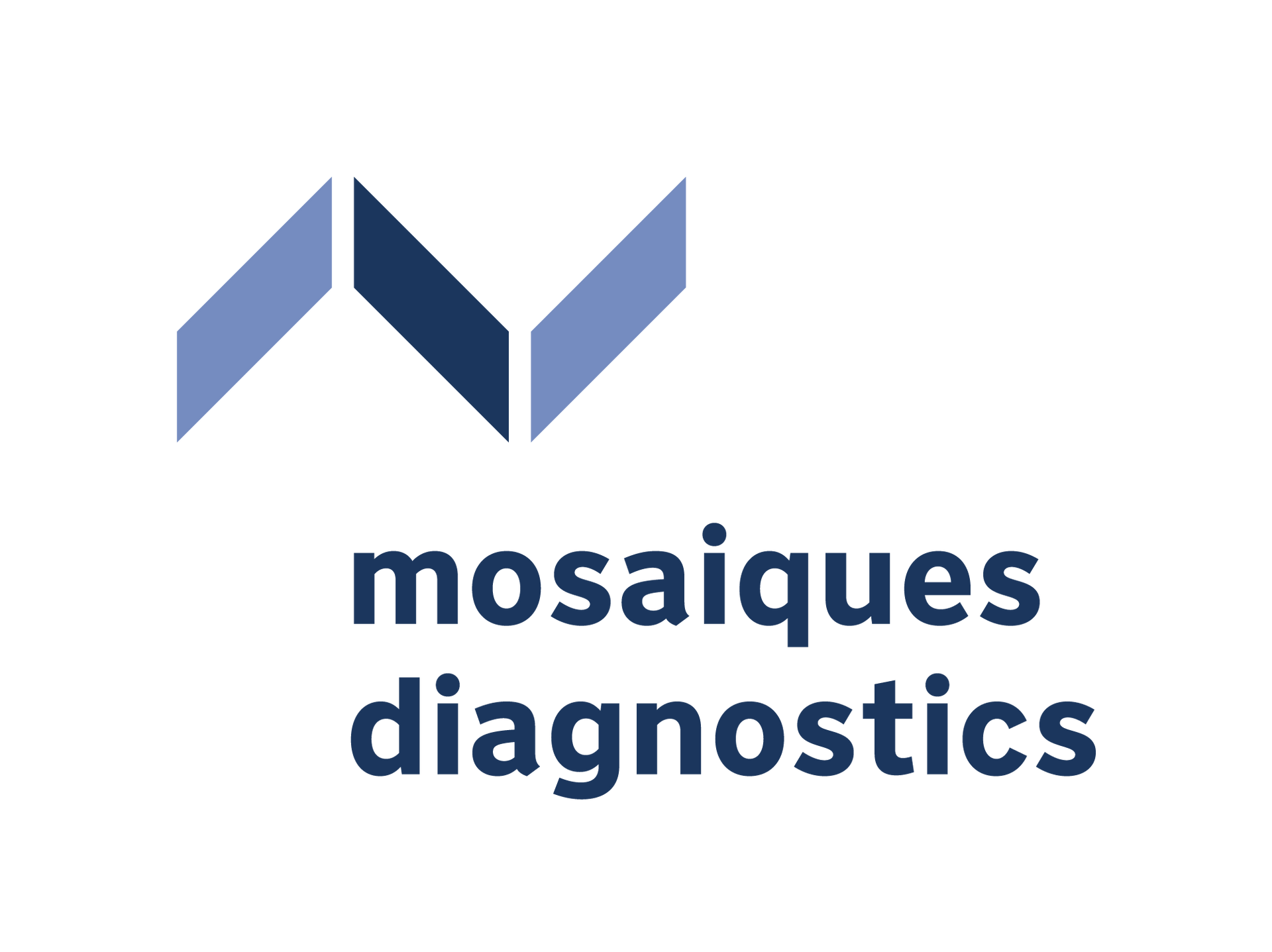Dr. Agnieszka Latosinska

Biography
Agnieszka Latosinska, born in 1988 in Poland, received her PhD from the Charité-Universitätsmedizin Berlin, Germany in 2016.
Her research was advanced by the EU funded Marie Sklodowska Curie BCMolMed (Molecular Medicine for Bladder Cancer) EID Program (FP7-PEOPLE-2012-ITN-317450). As a part of this highly competitive project, she had the opportunity to share her time between academic and industrial laboratories, focusing on translational research. She succeeded in establishment of analytical workflows for proteome analysis covering every step from study design, sample preparation, data analysis, label-free/ label-based quantification, data interpretation and validation. Application of these methods led to improved understanding of the molecular mechanism underlying bladder cancer invasion followed by identification of the novel, biology driven therapeutic targets, as well as biomarkers. She participated in numerous international conferences, where she has received travel awards for the presented work. She was nominated and selected to join the prestigious Lindau meeting with Nobel Laureates in 2014.
Inspired by the need of translating the technological developments of basic science to clinically useful solutions, after the MSCA fellowship she continued her work at Mosaiques Diagnostics GmbH. She led collaborative projects in the area of urogenital cancers, funded by EC and BMBF (national funding body). In addition, she was involved in numerous translational projects, applying urinary and tissue proteomics to define biomarkers for chronic diseases, to better understand molecular mechanisms underlying diseases (in the context of genitourinary malignancies, and cardiovascular diseases) as well as to find potential therapeutic targets and drugs based on molecular profiling multi-omics data (in the context of genitourinary malignancies). Moreover, she has gained an extensive experience in grant writing and project management and reporting. Her two grant applications submitted for SME-2 call were awarded with the seal of excellence.
She was awarded with a Marie Sklodowska Curie Individual Fellowship (H2020-MSCA-IF-2017-800048) in 2018, where she has been further applying proteomics tools (in combination with other –omics data) to understand mechanisms associated with prostate cancer progression, and define molecularly driven therapeutic drug targets and therapeutic agents. The project was selected for assessment via the Innovation Radar EU Programme, highlighting the innovative potential of the proposed work and outcomes.
As a highlight, she contributed to more than 45 publications on clinical proteomics (including research and review articles, book chapters and others) that have been cited more than 1614 times (H-index: 24). As a result of her outstanding achievements and expertise, she acted as a Guest Editor for the Special Issue in the leading journal Proteomics Clinical Applications, entitled “Clinical Proteomics on the Way Towards Implementation” (March 2019).
Her main research interest includes application of proteomics technologies and system biology approaches for defining biomarkers and investigating disease pathophysiology and drug targets for chronic diseases, with particular focus on understanding molecular mechanisms of fibrosis, especially the underlying collagen turnover.
CURRICULUM VITAE
| Name: | Agnieszka Latosinska |
|---|---|
| Date of Birth: | 1.5.1988, Nationality: Polish |
| ORCID ID: | 0000-0001-8917-2412 |
| Adress | Rotenburger Str. 20, 30659 Hannover |
| email: | latosinska@mosaiques-diagnostics.com |
| Phone: | (+49)-511-554744-30 |
| FAX: | (+49)-511-554744-31 |
Education
2013 - 2016 | Charité-Universitätsmedizin Berlin, Berlin, Germany
- Degree: Doctor of clinical science, Doctor rerum medicinalium (summa cum laude)
- Thesis topic: Optimizing methodologies for clinical proteomics
2010 - 2012 | Jagiellonian University, Cracow, Poland
- Degree: Master of Science in Biotechnology Program, 2012
- Thesis topic: Proteomic analysis of brain nuclear protein in pilocarpine model of temporal lobe epilepsy
2007 - 2010 | Jagiellonian University, Cracow, Poland
- Degree: Bachelor of Science in Biotechnology Program, 2010
- Thesis topic: Proteomic analysis of intrinsically disordered proteins
Work Experience
Senior scientists| MOSAIQUES DIAGNOSTICS GMBH, HANNOVER, GERMANY | April 2020 – date
- Proteomics-based projects mainly in the area of cardiovascular diseases and also cancer || Analysis of high-resolution CE-MS and LC-MS/ MS data || Performed statistical analysis || Development of biomarker panels (machine learning algorithms) || Drug repurposing based on molecular data || Bioinformatics analysis || Dissemination || Grant submission || Reporting || Project management.
H2020 MSCA Fellow| pcaprotreat (IF programme) | MOSAIQUES DIAGNOSTICS GMBH, HANNOVER, GERMANY | April 2018 – March 2020
- Marie Sklodowska Curie Actions, funded by the European Commission (H2020-MSCA-IF-2017-800048) || Integration of multi-omics (proteomics, peptidomics, transcriptomics) and multi-source data (tissue, urine, seminal plasma) || Statistical analysis || Systems Biology Workflows || Prediction of drugs/ compounds able to reverse disease signature || Annotation and selection of potential drug candidates, and drug targets || Multi-disciplinary training.
Post-doctoral Fellow | Mosaiques Diagnostics GmbH, Hannover, Germany | October 2017 – March 2018
- Proteomics-based projects || Analysis of high-resolution CE-MS and LC-MS/ MS data || Performed statistical analysis || Development of biomarker panels (machine learning algorithms) || Dissemination || Grant submission || Reporting || Project management.
Research internship | Systems Biology Ireland (SBI) - University College Dublin, Dublin, Ireland | July 2017 – September 2017
- Extensive training in Systems Biology approaches.
Post-Doctoral Fellow | Mosaiques Diagnostics GmbH, Hannover, Germany | January 2016 – December 2016 & February 2017 – July 2017
- Proteomics-based project in the area of bladder, prostate cancer and cardiovascular diseases || Analysis of high-resolution LC-MS/MS data || Critically assessed the quality of LC-MS/MS results || Analysis of high-resolution CE-MS data || Performed statistical analysis || Prepared and disseminated promotional materials to different target groups || Reporting || Grant writing || Project management.
PhD Researcher, MSCA fellow | Bcmolmed (EID programme) | Biomedical Research Foundation of the Academy of Athens, Athens, Greece | January 2013- January 2016
- Optimized and developed sample preparation protocols for LC-MS/MS analysis (tissue, cells, urine) || Established protocols for subcellular fractionation (ER/Golgi, Membrane, Nuclei, Secretome) || Prepared samples for down-stream proteomics analysis (SDS-PAGE, 2DE, LC-MS/MS) || Assessed and applied software’s for processing and quantification of LC-MS/MS data || Analysed LC-MS/MS data (Proteome Discoverer, Trans-Proteomic Pipeline) || Performed proteomics data functional annotation, pathway and network analysis || Interpreted and prioritized proteomics findings || Investigated mechanisms associated with bladder cancer invasion || Performed cell culture and molecular biology assays || Solved technical problems creatively.
Editorial, Reviewer Activities
- Guest Editor in Proteomics Clinical Applications: "Clinical Proteomics on the Way Towards Implementation", March 2019
- Reviewer for: Diagnostics, Journal of Personalised Medicine, Proteomes, Proteomics, Journal of Proteome Research, PLOS ONE, Scientific Reports
Prizes and Awards
- Seal of Excellence Certificate for the project proposal 880256 entitled “An innovative Service to identify Molecularly-driven therapeutic agents and drug targets in Oncology” submitted under the Horizon 2020’s SME instrument phase 2 call (June 2019)
- Seal of Excellence Certificate for the project proposal entitled “Biomarker Guided Prostate Cancer Management” submitted under the Horizon 2020’s SME instrument phase 2 (January 2019)
- BJU International Prize for the best academic paper for Presentation entitled “A Urinary Peptide Biomarker Panel to Identify Significant Prostate Cancer” (BAUS Annual Meeting 2016, Liverpool, UK)
- Travel award for the poster presentation entitled “Identification of proteins involved in invasion of bladder cancer using cell line models” (22nd Meeting of EAU Section of Urological Research, Glasgow, UK)
- 64th Lindau Nobel Laureate Meeting on Physiology or Medicine (Lindau, Germany, 2014)
Funding received so far
- MSCA Individual Fellowship 2021: Disco-I HORIZON-TMA-MSCA-DN-ID (101072828)
- Eurostars project 2020-2023: ReDiRECt (E! 113726)
- MSCA Individual Fellowship 2018-2020: PCaProTreat MSCA-IF-EF-SE EID-ITN (800048)
- Eurostars project 2017-2019: BioGuidePCa (E!11023)
